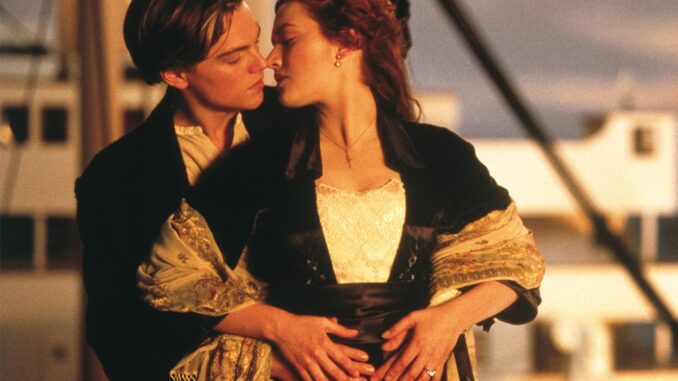
The icy grip of the North Atlantic, the shimmering grandiosity of a doomed liner, the star-crossed romance of Jack and Rose – Titanic isn't just a movie; it's a cinematic colossus, a cultural lodestar that etched itself onto the collective consciousness of a generation. For those who came of age in 1997, Kate Winslet, as the fiery Rose DeWitt Bukater, became an instant icon, forever entwined with the film's epic tragedy and enduring magic. To imagine Titanic without Winslet is to imagine an ocean without its depths.
But what happens when this monumental piece of a parent's professional past collides with the fresh, unburdened gaze of their child? Kate Winslet's candid revelation about her son's reaction to watching Titanic for the first time offers more than just a charming anecdote; it's a poignant illustration of time's relentless march, the unique lens of generational perspective, and the tender, often humorous, collision of celebrity and everyday parenthood.
For Winslet herself, Titanic was a crucible of immense pressure and unparalleled fame. It launched her into superstardom, casting a long, indelible shadow over her career. For decades, wherever she went, she was Rose, linked inextricably to Leonardo DiCaprio's Jack, forever answering questions about the door, the cold, and the "King of the World" moment. Her memories of the film are likely a complex tapestry of grueling shoots, thrilling success, and the overwhelming tidal wave of global recognition.
Enter her son, born years after the Titanic phenomenon had already peaked and settled into its legendary status. He approaches the film not as a historical artifact, not as a cultural benchmark, and certainly not with any of the baggage of its star's fame. He watches it simply as a movie his mother is in. His perception is a tabula rasa, untainted by nostalgia, unburdened by critical discourse, and utterly devoid of the cultural reverence that adults bring to the viewing experience.
Winslet described his reaction with a disarming honesty that is typical of children. Instead of awe at the visual effects, or tears for the tragic lovers, or even recognition of his mother's profound acting, his primary observation was often, "Is that you, Mum? Why are you doing that? You look so different!" The grand sweep of cinematic history was reduced, with a child's piercing clarity, to a simple, slightly confused interaction with his own parent on screen. The legendary Rose DeWitt Bukater was, to him, merely "Mum," albeit a younger, strangely dressed version of her.
This blunt, unvarnished reaction serves as a powerful illustration on several fronts. Firstly, it highlights the generational chasm in how we consume media. For Winslet's son, Titanic isn't a 20-year-old blockbuster; it's just another movie, viewed perhaps on a tablet or a flat-screen TV, competing with countless other digital narratives. The context of its groundbreaking release, its box office shattering records, or its impact on popular culture simply doesn't exist in his immediate experience. He sees the narrative and the character, divorced from the historical significance of its production.
Secondly, and perhaps most poignantly, it illustrates the profound humanizing effect of parenthood. No matter how many awards a parent wins, how many millions of people admire their work, or how iconic their roles become, to their children, they are simply "Mum" or "Dad." The elaborate tapestry of fame, the carefully constructed public persona, the gravitas of a global star – all of it dissolves in the face of a child's direct gaze. For Winslet, the global superstar, being reduced to a slightly bewildered "Mum" by her son watching her most famous role is a grounding force, a reminder that outside the lights and cameras, her most vital role is always within the domestic sphere.
The anecdote also speaks to the passage of time. The youthful Rose, full of fire and defiance, is now a woman in her late forties, a mother reflecting on her past through the eyes of her present. Her son's reaction isn't just about the movie; it's a mirror reflecting not just the film's enduring power, but the poignant beauty of life's relentless progression. It's a testament to how art persists, how fame fluctuates, but how the essential bonds of family remain the most potent and real forces in our lives.
Kate Winslet sharing her son's honest reaction to Titanic is more than just a celebrity soundbite. It's an illustrative moment that beautifully encapsulates the humbling, often amusing, and deeply affirming reality of being a parent, even when your past is etched in the grand, dramatic strokes of cinematic legend. It reminds us that while the world may see an icon, a child will always simply see their Mum, wondering, perhaps, why she's doing that with that man on that big boat.